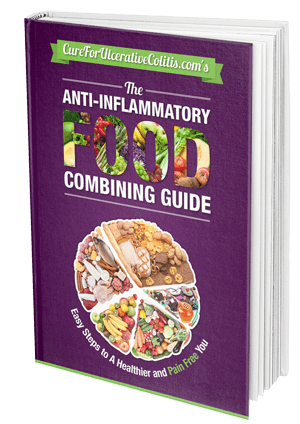What is Ulcerative Colitis?
Ulcerative Colitis is an Auto-Immune Disease, wherein your body wrongly identifies your colon as a foreign object and starts to attack it, thereby creating the misery of symptoms and suffering.
Definition of Ulcerative Colitis
By Mayo Clinic staff
Ulcerative Colitis an Inflammatory Bowel Disease (IBD) that causes chronic inflammation of the digestive tract, is characterized by abdominal pain and diarrhea. Like Crohn’s disease, another common IBD, Ulcerative Colitis can be debilitating and sometimes can lead to life-threatening complications.
Ulcerative Colitis usually affects only the innermost lining of your large intestine (colon) and rectum. It occurs only through continuous stretches of your colon, unlike Crohn’s disease, which occurs in patches anywhere in the digestive tract and often spreads deep into the layers of affected tissues.
There’s no known cure for Ulcerative Colitis, but therapies are available that may dramatically reduce the signs and symptoms of Ulcerative Colitis and even bring about a long-term remission.
Ulcerative Colitis symptoms can vary, depending on the severity of inflammation and where it occurs. For these reasons, doctors often classify ulcerative colitis according to its location.
Here are the signs and symptoms that may accompany Ulcerative Colitis, depending on its classification:
- Ulcerative Proctitis -In this form of ulcerative colitis, inflammation is confined to the rectum and for some people, rectal bleeding may be the only sign of the disease. Others may have rectal pain, a feeling of urgency or an inability to move the bowels in spite of the urge to do so (tenesmus). This form of ulcerative colitis tends to be the mildest.
- Proctosigmoiditis -This form involves the rectum and the lower end of the colon, known as the sigmoid colon. Bloody diarrhea, abdominal cramps and pain and tenesmus are common problems associated with this form of the disease.
- Left-sided colitis -As the name suggests, inflammation extends from the rectum up the left side through the sigmoid and descending colon. Signs and symptoms include bloody diarrhea, abdominal cramping and pain on the left side, and unintended weight loss.
- Pancolitis -Affecting the entire colon, pancolitis causes bouts of bloody diarrhea that may be severe, abdominal cramps and pain, fatigue, and significant weight loss.
- Fulminant colitis -This rare, life-threatening form of colitis affects the entire colon and causes severe pain, profuse diarrhea and, sometimes, dehydration and shock. People with fulminant colitis are at risk of serious complications, including colon rupture and toxic megacolon, which occurs when the colon becomes severely distended.
The course of Ulcerative Colitis varies, with periods of acute illness often alternating with periods of remission. But over time, the severity of the disease usually remains the same. Most people with a milder condition, such as ulcerative proctitis, won’t go on to develop more-severe signs and symptoms.
When to see a doctor?
See your doctor if you experience a persistent change in your bowel habits or if you have any of the signs and symptoms of Ulcerative Colitis, such as:
- Abdominal pain
- Blood in your stool
- Ongoing bouts of diarrhea that don’t respond to over-the-counter (OTC) medications
- An unexplained fever lasting more than a day or two
Although Ulcerative Colitis usually isn’t fatal, it’s a serious disease that, in some cases, may cause life-threatening complications.
Like Crohn’s disease, Ulcerative Colitis causes inflammation and ulcers in your intestine. But unlike Crohn’s, which can affect the colon in various sections, Ulcerative Colitis usually affects one continuous section of the inner lining of the colon beginning with the rectum.
No one is quite sure what triggers Ulcerative Colitis, but there’s a consensus as to what doesn’t. Researchers no longer believe that stress is the main culprit, although stress can often aggravate symptoms. Instead, current thinking focuses on the following possibilities:
- Immune System -Some scientists think a virus or bacterium may trigger ulcerative colitis. The digestive tract becomes inflamed when your immune system tries to fight off the invading microorganism (pathogen). It’s also possible that inflammation may stem from an autoimmune reaction in which your body mounts an immune response even though no pathogen is present.
- Heredity -Because you’re more likely to develop ulcerative colitis if you have a parent or sibling with the disease, scientists suspect that genetic makeup may play a contributing role.
Risk factors
By Mayo Clinic staff
Ulcerative Colitis affects about the same number of women and men. Risk factors may include:
- Age -Ulcerative colitis can occur at any age, but ulcerative colitis often affects people in their 30s. Some people may not develop the disease until their 50s or 60s.
- Race or Ethnicity -Although whites have the highest risk of the disease, it can occur in any race. If you’re of Jewish descent, your risk is even higher.
- Family History -You’re at higher risk if you have a close relative, such as a parent, sibling or child, with the disease.
- Isotretinoin (Accutane) Use -Isotretinoin (Accutane) is a powerful medication sometimes used to treat scarring cystic acne or acne that doesn’t respond to other treatments. Although cause and effect hasn’t been proved, studies have reported the development of inflammatory bowel disease with isotretinoin use.
- Nonsteroidal Anti-Inflammatory Medication -Although these medications — ibuprofen (Advil, Motrin, others), naproxen (Aleve), diclofenac (Cataflam, Voltaren), piroxicam (Feldene) and others — haven’t been shown to cause ulcerative colitis, they can cause similar signs and symptoms. Additionally, these medications can make existing ulcerative colitis worse, and may make your initial diagnosis more difficult.
Complications
Possible complications of ulcerative colitis include:
- Severe bleeding
- Perforated colon
- Severe dehydration
- Liver disease
- Osteoporosis
- Inflammation of your skin, joints and eyes
- An increased risk of colon cancer
- Toxic megacolon


